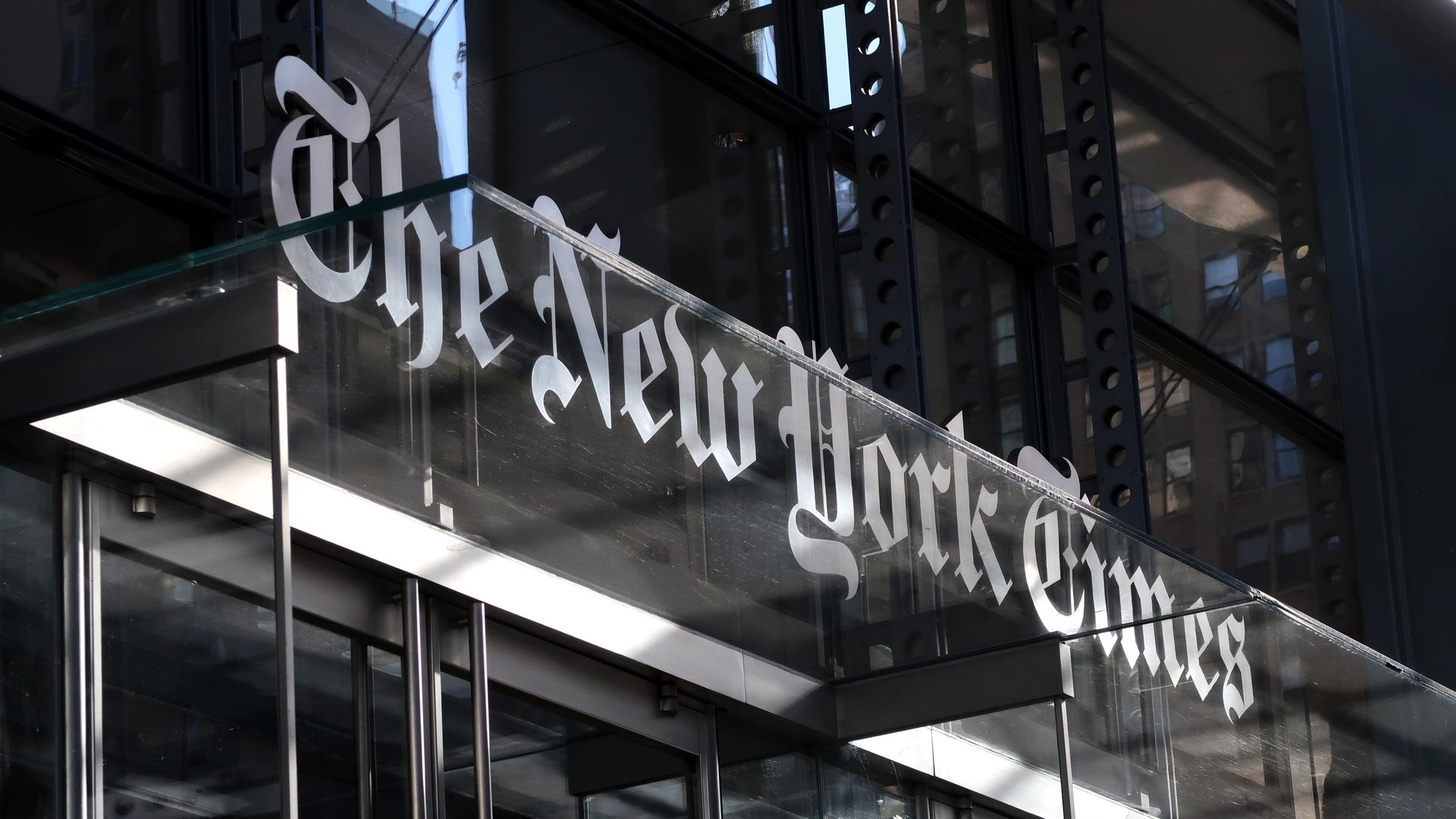News media flee Russia to avoid Putin's fake news law

- Sara Fischer, author ofAxios Media Trends

Photo: Gary Hershorn/Getty Images
The New York Times pulled its reporters out of Russia on Tuesday, the latest precaution taken by a large media company in response to The Kremlin's punitive new "fake news" law.
Why it matters: "Even in the depths of the Cold War, under the Soviet dictatorship, this never happened," tweeted Times deputy managing editor Cliff Levy.
- The Times' chief White House correspondent Peter Baker commented that during the beginning of the Putin era, "it never came close to this."
State of play: Discovery has suspended "the broadcast of its channels and services in Russia," a spokesperson said this week.
- Condé Nast CEO Roger Lynch later said the global magazine giant would temporarily suspend all of its publishing operations with Condé Nast Russia.
- A CNN spokesperson said that the cable giant has temporarily ceased reporting from Russia, but isn't shutting down its Moscow bureau.
- Even the London Stock Exchange said Tuesday it would suspend access to its products containing news and commentary in Russia.
Flashback: Broadcasters like CNN, along with ABC, and CBS, said they would stop broadcasting in the country shortly after Russia passed the new law last week.
- Bloomberg temporarily suspended its news-gathering inside Russia on Friday.
- Radio Free Europe/Radio Liberty suspended its broadcast operations Sunday, after The Kremlin blocked its website. The websites of Voice of America, which is also funded by the U.S. government, German broadcaster Deutsche Welle, and Meduza, an independent Russian outlet based in Latvia, were also blocked.
Between the lines: Many news companies are temporarily suspending operations or broadcasts while they assess the impact of this new law. Others have found compromises.
- The BBC said Tuesday that after careful deliberation, it has decided to resume English language reporting from Russia, after temporarily suspending all operations last week.
What to watch: Broadcasters are looking to short-wave radio signals, which travel across long distances. as a way to reach Russian civilians amid crackdowns.
- Meanwhile, tech firms continue to restrict Russian state media content.
- Instagram said it would follow its sister company Facebook is down-ranking posts from state media outlets in its feed and in Stories, per Engadget.
Editor's note: This story has been updated with Discovery's statement.